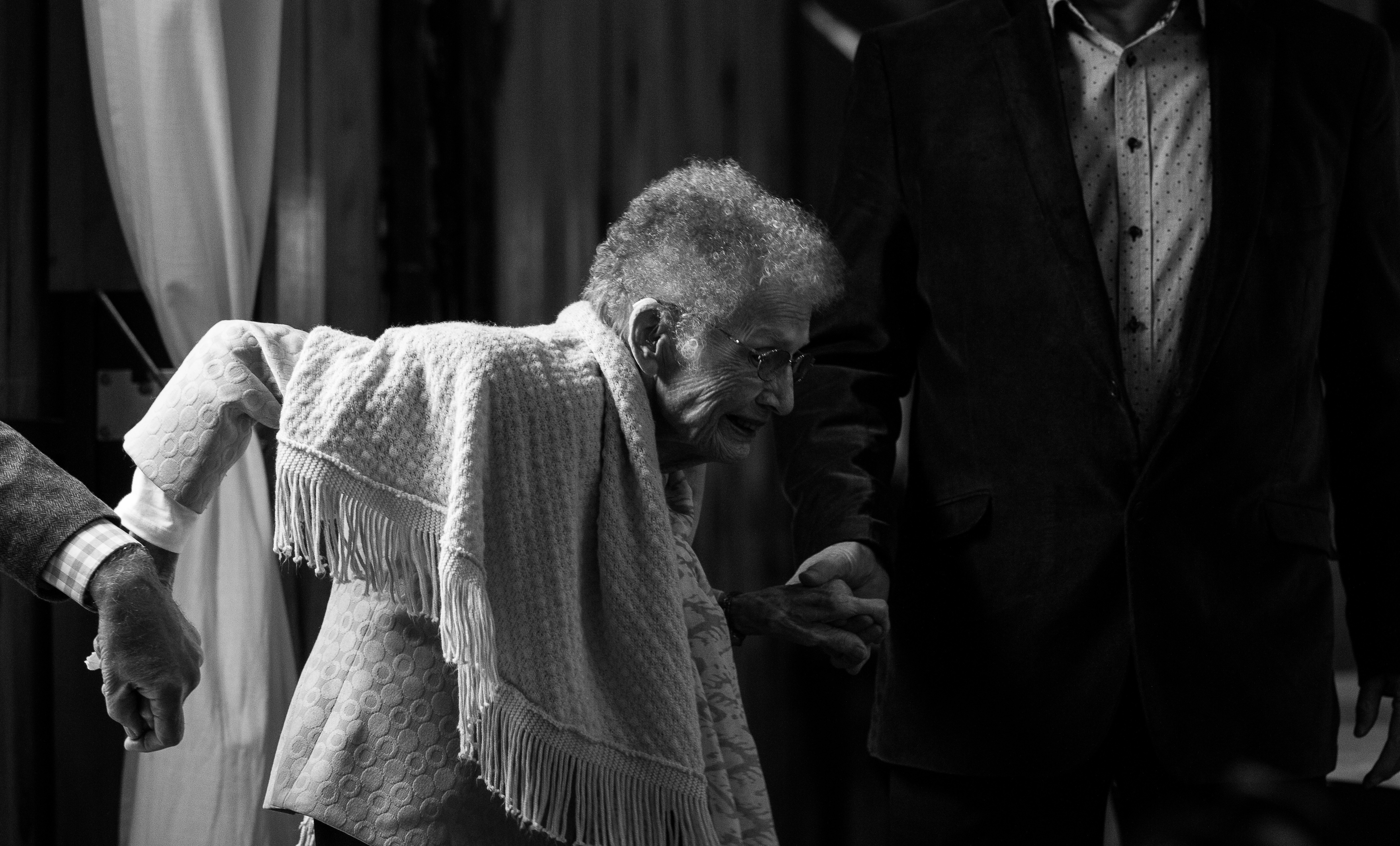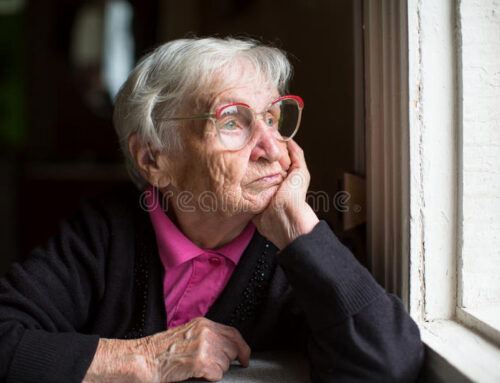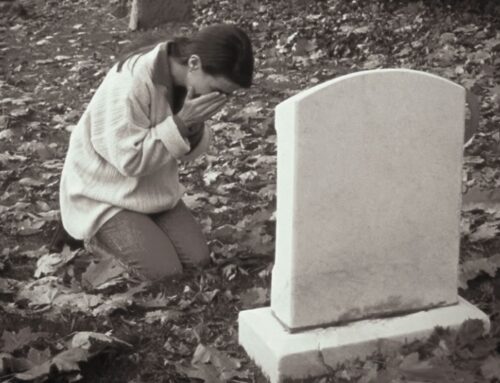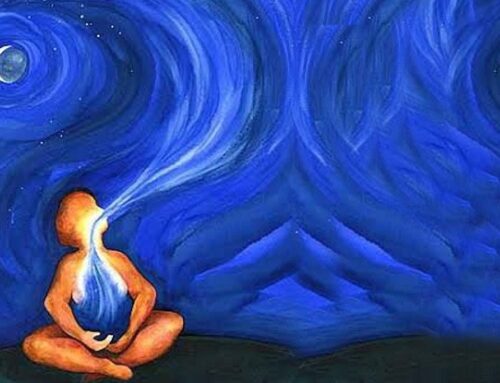The news has just come in—news you did not want to be true. But it is true, and you and your family are about to enter the Death Zone. If this is starting to sound like a scary movie it isn’t, and by the time you finish reading this I hope you will lose any fear you may have of the death zone. The fact is, we all will die. This is not a secret. But we like to think if we keep it hush-hush it may magically disappear; so being with the dying is a process that is often not discussed. But I am going to take you on a journey into the death zone and show you what it really means.
A few months ago I had a broadcast to do in Las Vegas, and I posted it on my Facebook fan page, as I do many of my events. One of my friends who saw the posting asked me if I could help her very dear friend who was dying at his sister’s house in Las Vegas. I did some meditation and prayer before I left, and I knew almost instantly that I would be there more for the sister than for the man who was dying.
No one prepares us to take care of the dying. I am not talking about placing a loved one in a facility; I am talking about when a loved one wants to die at home. We say yes and then begin the process. No books are read, no classes taken. We just do it. We enter the death zone willingly with our loved one because we care. Our home is taken over by hospice staff dropping in and out. Medical equipment is scattered about, and there are new sounds, which usually include the constant hum of an oxygen machine. The reality of this scenario is that 90% of the care of those dying at home is given by family members. Without support, family members turned caregivers struggle with exhaustion and they begin to wonder about what is taking place and how long the dying process will take. Death floats in the air like a dark cloud waiting to burst, and joy is a difficult thing to find anywhere. I was glad I would be able to be a support for the family I was about to visit in Las Vegas.
Upon walking into the house of this dear woman, whom I’ll call Judy for privacy’s sake, I was greeted by an older Labrador retriever, an adorable puppy, and an excited six-year-old who was going to be attending a birthday party shortly. Judy’s dying brother, Randy, was sitting outside in the shade with his head resting on a table, and the puppy close by. Judy told me the puppy liked to stay outside with him. I barely caught a glimpse of Randy, but she let me know this is where he spent most of his time.
Judy poured us glasses of water and we sat at the kitchen table. She told me the story of how Randy had come to live with them and had taken care of his nephew since he was a baby while she and her husband were at work. She told me, “The television was never on when I got home. Instead they played and built things like boys do.” Randy was a precious gift to her son. As she spoke the pain, sadness, and fear in her voice was palpable. Judy had no idea about how to cope in the death zone, and as a result, she felt as if her life was falling apart around her. She was afraid, and she did not know what to say or do. Juggling work, family, and a dying brother was not easy. Her husband was even more afraid of the death zone than she was, and their relationship was becoming strained. She expected him to handle Randy’s dying process in a certain way and he couldn’t. In fact, he did it the only way he knew how, which was to distance himself from it. I wasn’t surprised by Judy’s revelation. Detachment is a coping tool that is common for people facing the death of a loved one.
Tears were streaming down Judy’s face as she finished her story. I got close to her, touched her gently on the arm, and said, “I want to stop all the thoughts right now and share with you something that is very important.” I paused and made eye contact. “What you are doing right now in this house is very holy. Your home has become sacred ground. Your brother has chosen to die here with you.”
Her beautiful eyes met mine and she said, “I never thought of it like that.”
The energy of the words I shared with Judy helped with all of our conversation about death and dying. I slowly began to talk to her about her husband, helping her to understand that his approach was okay. People have histories around death most of the time, and whatever they’ve experienced, whether negative or positive, will show up when they are faced with their next experience of it. Judy’s husband would receive lessons from this death as well, if he were ready to take the journey. I have a saying that I tell my clients: “When we are uncomfortable it’s a sign that our soul is trying to grow.”
Some souls are not quite ready for that growth.
Judy’s husband’s detachment from Randy’s dying process was simply an expression of his discomfort, and reflected his most recent level of growth around death and dying, which was perfectly okay. I compare this to being in grammar school. Think about when you were a young child on the playground at school, and the first-graders looked so young compared to the fifth-graders. We would never expect a first-grader to know what a fifth-grader knows. And when it comes to the soul’s development, we cannot ask a person to understand something they have not yet learned, or are not ready to learn. They may need to repeat the class or be held back until they are mature enough to grasp the lesson. It is important to understand that experiencing grief is unique for every individual, and it is part of his or her soul’s process. This explanation helped Judy quite a bit, and she was finally able to feel compassion for her husband instead of anger.
The other big concern for Judy was the fear that the actual moment of death might be horrible because of the tumor Randy had on his neck. His cancer was practically strangling him and this was a terrifying thought to her. Since Randy’s hospice care was in place, I was able to tell Judy how much hospice care would do to help him die peacefully. I know this to be true because I have been doing hospice for fourteen years now and have seen the positive effects it has on the dying. It is well documented that 98% of people who die with hospice care die peacefully. You can look it up on the National Hospice and Palliative Care Organizations site at www.nhpco.org. Hospice’s number one job is to make sure pain is managed and that the patient is comfortable. As the disease progresses the patient is monitored carefully, and appropriate actions are taken to ensure they are not suffering physically.
Judy and I talked about what dying would look like for Randy, and then she told me something that gave me goose bumps all over. Randy had shared with her about an experience he’d had one day when she was at work. He was sitting outside as usual when a sense of peace came over him and he experienced the presence of a welcoming light. Randy knew that he could go right then if he wanted to, but he didn’t. He told Judy he did not want her to come home and find his body, and then he said he would die on the weekend. Imagine that! Since Judy told me Randy was most comfortable when he was outside, my heart felt that that’s where he would pass away. He loved it out there.
Judy seemed to be doing so much better after our talk. She said she had a sense of peace, knowing it would all be okay. She was such an incredibly loving sister, and she and her brother had a bond that went far beyond an earthly relationship. Their souls were deeply connected to one another. At one point while we were talking, Randy poked his head around the door and said, “I don’t want to talk (it was hard for him because of the cancer) but you are here to help my sister. She needs you.”
I said, “Okay Randy.”
As I got up to leave, Judy stopped me and said, “I want you to touch him Nina.”
“Judy, he made it very clear he did not want to see me, and I need to honor his wishes.” I told her gently.
When Judy expressed how much he needed it, I told her to tell Randy that I was a licensed massage therapist but was retired to most except for special people like Randy. Let me tell you, once Randy heard this his shirt came off before I even got a foot out the door! It was precious, and I hope you can see the holiness in it. At that moment I asked God to flood me, and my hands, with His light and love, and I accessed my HeartSight.
HeartSight is a process I have developed that entails seeing through the eyes of the heart, rather than the eyes of the mind. Heart Sight is what helped me get beyond Randy’s tumor, past the disease that was ravaging his body, and connect with his soul. I had the privilege of being with and assisting the beautiful spirit of a man who was going home, and I felt so humbled at that moment. My hands were guided by something much bigger than me as they went straight to the tumor. I touched it and tried to lift it to release the pressure while Judy sat and cried as she held Randy’s hand.
As I worked on him he said, “You’re a professional.”
“Yes I am,” I replied, “and I can teach Judy how to touch you, too.”
I ran my hands down Randy’s back, making sure not to miss a bone or leave any part of his skin untouched. It was my act of blessing him. Then I ran my fingers through his hair and massaged his head. I could feel his body relaxing. Then he asked me the question that so many do: “What will it be like?”
I gave Randy the only answer I could, which was, “Obviously I have not died yet, but what I can tell you is that I believe when your soul’s purpose is complete you will go.” I also assured Randy that he would die peacefully in spite of his tumors—that he would not be strangled. This had been a huge fear for him, and thankfully he was able to let go of it.
As I left the house Judy could not thank me enough. “This is what I do,” I told her. She gave me a quick hug, and as she stepped back I called her back to me, saying, “Let’s do that hug again.” This time, as I hugged Judy, I whispered to her to relax in my arms, and when she did our hearts connected; we experienced that feeling of knowing how connected we all are to each other.
After I left Judy and Randy I went to my hotel, did my interview, and drove home. I had seen Randy and Judy on Friday. Monday morning I got a message from Judy on my cell phone, and I quickly called her back. This is what she told me:
“When Randy got up this morning he told me not to go to work, because he was going to die today, so I called in to work and let them know I wouldn’t be in. Randy and I sat on the patio and talked about what was going on for him, and my son came over and said very simply, in the way of a six-year-old, ‘Goodbye Uncle Randy.’ I had explained to him that Uncle Randy was going to cross the rainbow bridge, just like our dog that had recently passed away, and he understood and accepted this. We continued sitting together outside until Randy suddenly had a feeling, a sensation. I asked if this was it, and at that moment Randy looked up and exclaimed, ‘Oh. Oh!’ His words were not an expression of pain but of bliss. Then he closed his eyes and transitioned.”
Despite all her fears and misgivings, Judy had helped her brother through the death zone with ease and grace, and without the fear and anguish often associated with dying. The death zone is not a scary place. It is just a zone, like the baby zone. One is simply entering into a place, a new experience that requires courage, strength and love. When you enter the death zone with a loved one remember that you are also in a holy zone—a sacred event is taking place that you, a precious soul, have chosen to assist with.
Nina Impala is a spiritual counselor who helps people navigate through dying and grief. She assists people with all kinds of loss. Nina is the author of the book, Dearly Departed out on kindle and paper back very soon. She is also the host of the HeartSight show on awakening zone network. You can learn more about Nina, her work, and her HeartSight Practitioner’s training Process at www.tutoringforthespirit.com.






